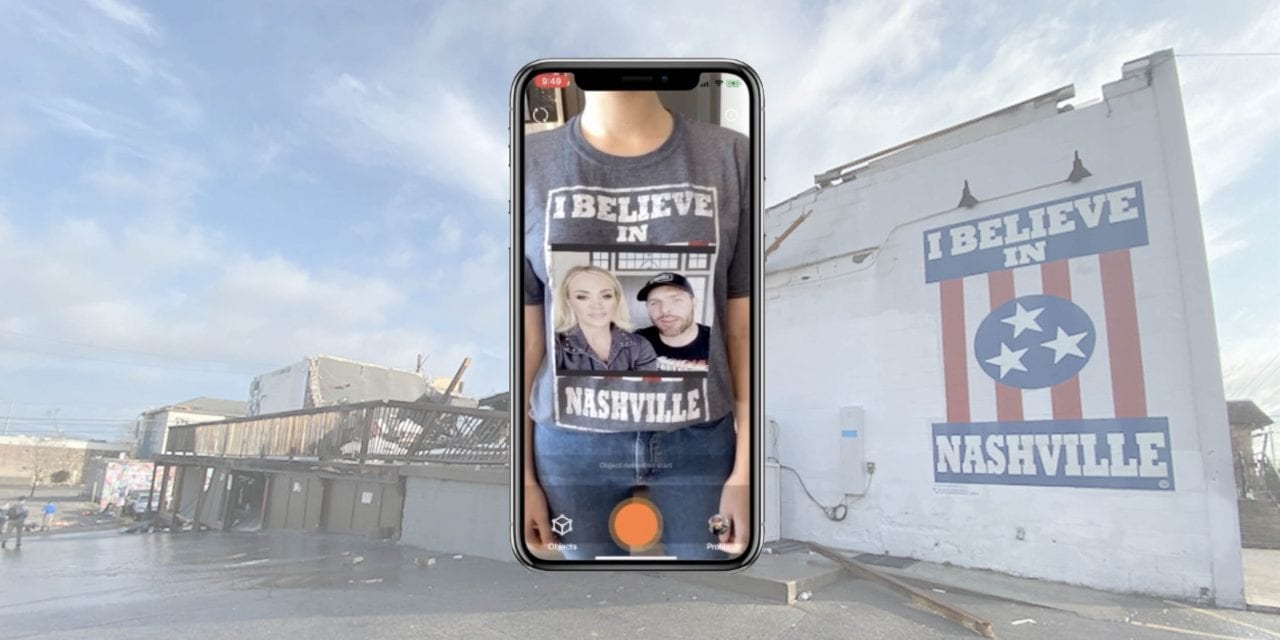VideoBomb Brings Augmented Reality to Music City
Our items of everyday use can live a number of lives. With the right applications, the mundane objects that we use can become magical. It is possible that the already appealing elements of our environment can reach new heights of beauty or become something wildly different. The techno-wizardry of augmented reality—the distant cousin of virtual reality, where almost all of the experience is artificial—marries virtual and real elements to change how we perceive our surroundings in a radical way. The Franklin Institute, a science museum and center for science education and research based in Philadelphia, says that the technology is readily available for a number of uses, including the mobile game sensation Pokémon Go. It’s an industry that’s presently worth $18 billion and projected to reach a value of nearly $200 billion by 2025.

VideoBomb is the smartphone app that’s already helping Music City creators and businesses reach audiences through augmented reality. It’s an application that Founder and CEO Chad Marcum sees as laden with infinite possible uses. “The problem we’re solving is that tangible objects need better digital interactions and VideoBomb provides those digital interactions to products, brands, anything you can imagine,” Chad says. “Books, magazines, business cards, shoes, paintings, soft drinks, merchandise, literally anything you can think of.”
The app—which launched in March 2020 for iOS—was actually available earlier than planned and was able to help the State of Tennessee with its tornado recovery efforts. Marcum shares, “We were still several weeks away from launching the new version of VideoBomb. However, everything changed after the tornados hit; we watched in awe as our community came together to solve the devastation and we became committed to help. Our original launch strategy was actually planned in Los Angeles with a mural artist by the name of Kelsey Montague and in partnership with Jamy Wheless, the well-known animator of Yoda from Star Wars and many other well-known digital masterpieces. The State of Tennessee knew about our project in LA, reached out, and said, ‘We’ve got a wall in Nashville that needs your help immediately.’”

Pictured: Chad Marcum
The wall referenced is the iconic “I Believe in Nashville” mural, which is both a hotspot for visitors and a frequent backdrop for local photos. The State of Tennessee had seen the undamaged “I Believe in Nashville” mural as a beacon of hope to counterbalance the tornado destruction that damaged the east side. They thought of it as a smaller-scale Ground Zero, a community symbol that could spark unity and civic pride right when the city needed it most.
Chad tells Launch Engine, “They decided to make it [a] focal point in media. We reached out to numerous celebrities and made the call to action to help raise money and awareness for the Community Foundation. When you scan the mural, an exciting interaction happens. You see these celebrities talking in support of the city like they’re painted on the wall. We then ended up partnering with a t-shirt company, in which [partnership] one hundred percent of the t-shirt proceeds went towards the tornado relief. We were able to sell over $800,000 worth of t-shirts in a matter of weeks. While it is not the original launch we planned, it makes for a great start and will change a lot of people’s lives for the better.”
Sweetening the pot for people wanting to use VideoBomb as part of their marketing, the platform includes a SaaS model, a technology that can integrate X, Y, and Z into other third-party services, and a blanket license with Sony that gives VideoBomb license to over 125,000 music videos to use for rotoscoping an artist’s likeness and superimposing them into other people’s videos.
Marcum explains, “There’s a big opportunity for a lot of creative people to play in this space and shape a world that hasn’t been built yet. VideoBomb is one of those pioneers helping lay the infrastructure in such a large market.” He adds that the opportunity to create digital interactions through augmented reality finally exists “at a cost that could not have been imagined prior to our launch… at such a low entry point for both consumers and brands. We provide brands four unique value propositions: unique data capturing, a high social coefficient, ease of use, and cost-effective options. We want to make sure the brands we work with win.”
While specific details of VideoBomb’s next projects can’t be given, Launch Engine readers should keep their eyes peeled for projects involving certain celebrities, major sporting activities, and brands that may be in your local grocery store. And as VideoBomb’s app becomes more popular, Launch Engine will keep users up to speed on new developments. The VideoBomb app is currently available for iPhone users, with tentative plans to release the app for other smartphones in Q3 2020. For further information about VideoBomb, be sure to visit their website, follow them on Twitter, Instagram, and YouTube.








